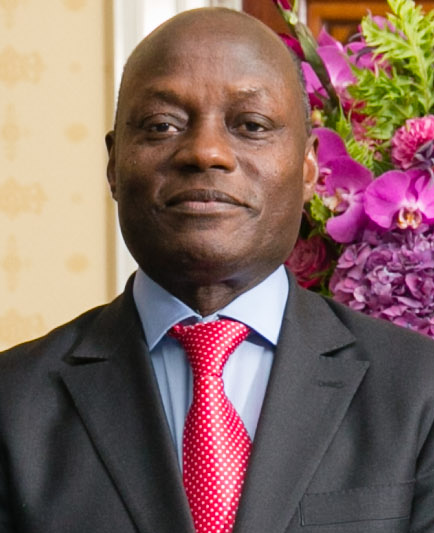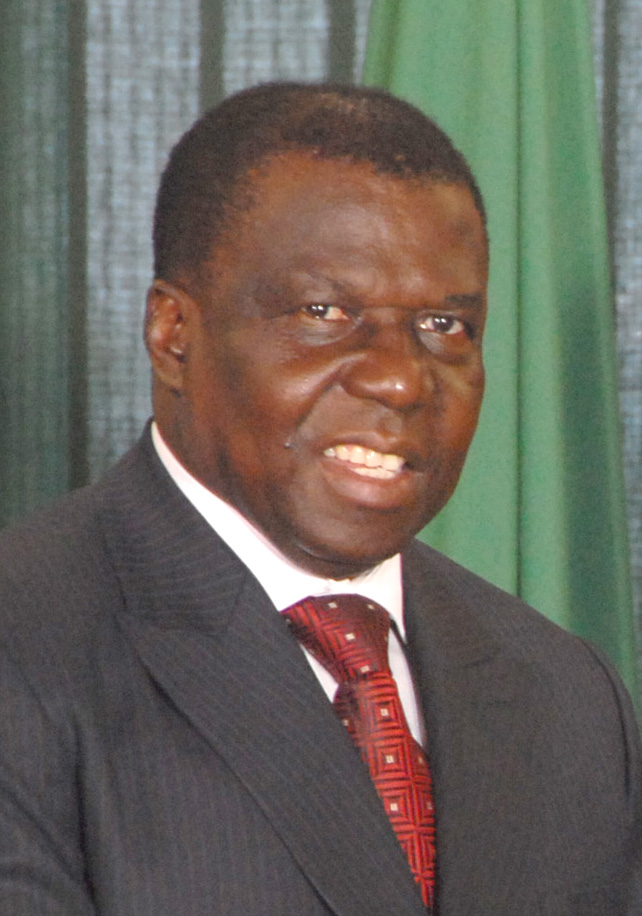|
United Social Democratic Party
The United Social Democratic Party ( pt, Partido Unido Social Democrático, PUSD) is a centre-left social democratic political party in Guinea-Bissau. History The party was established on 30 May 1991 and legalised on 6 June 1992.Peter Karibe Mendy (2013) ''Historical Dictionary of the Republic of Guinea-Bissau'', Scarecrow Press, p328 Victor Saúde Maria was its initial leader. In the 1994 general elections Saúde Maria finished seventh in the presidential elections with 2% of the vote, and the party failed to win a seat in the National People's Assembly. Saúde Maria died on 25 October 1999, and a subsequent leadership crisis prevented it from contesting the 1999 general elections. Former Prime Minister Francisco Fadul was elected as the President of the PUSD on 18 December 2002 at a party convention in Bissau.''Political Parties of the World'' (6th edition, 2005), ed. Bogdan Szajkowski, page 272. In the 2004 parliamentary elections the party received 17.6% of the vote and wo ... [...More Info...] [...Related Items...] OR: [Wikipedia] [Google] [Baidu] |
Francisco Fadul
Francisco José Fadul (born 15 December 1953) is a Bissau-Guinean politician who was Prime Minister from 3 December 1998 to 19 February 2000. He led the United Social Democratic Party (PUSD), one of the country's main political parties, from 2002 to 2006. Career Fadul was appointed as Prime Minister, at the head of a national unity government, on 3 December 1998. He had previously been political adviser to General Ansumane Mané, who led the rebellion against President João Bernardo Vieira in the Guinea-Bissau Civil War;"GUINEA-BISSAU: Rebel candidate appointed country’s new prime minister" IRIN, 3 December 1998." ... [...More Info...] [...Related Items...] OR: [Wikipedia] [Google] [Baidu] |
Political Parties In Guinea-Bissau
This article lists political parties in Guinea-Bissau. Guinea-Bissau has a multi-party system with numerous political parties, in which no one party often has a chance of gaining power alone, and parties must work with each other to form coalition governments. Active parties Parliamentary parties Other parties *United Social Democratic Party () (PUSD) *Green Party () (LIPE) * Democratic Socialist Party () (PDS) *Democratic Social Front () (FDS) *Resistance of Guinea-Bissau-Bafatá Movement () (RGB-MB) *National Unity Party () (PUN) *United People's Alliance () (APU) * National Union for Democracy and Progress () (UNDP) * Workers' Party () (PT) *Manifest Party of the People () (PMP) *Socialist Party of Guinea-Bissau () (PSGB) * Guinean Democratic Movement () *Guinean Civic Forum–Social Democracy () (FCG/SD) *Guinean People's Party () (PPG) * Democratic Convergence Party () (PCD) *Republican Party for Independence and Development () (PRID) *Social Democratic Party () (PSD) * M ... [...More Info...] [...Related Items...] OR: [Wikipedia] [Google] [Baidu] |
Carmelita Pires
Carmelita Pires (born November 16, 1963) is a Bissau-Guinean lawyer and politician. She was the Minister for Justice. She was the third woman to be a minister in her country. Life Pires was born in Bissau in 1963. She studied law at the University of Coimbra before going to the University of Lisbon where she obtained a master's degree in legal and political sciences. She became the Minister for Justice on 13 April 2007. In July 2008 she received death threats by phone which she believed was because of progress made against drug dealers with the assistance of the United Nations. She ceased to be a minister in 2009. She believed that a thorough review was required of the justice system was required. The USA described Guinea Bissau as a narco state. 200 to 300 tonnes of cocaine pass though the state whereas the estimated value of the country's gross domestic product is equal to just 6 tonnes of cocaine. In November 2012 she stopped three years work advising the President of the Eco ... [...More Info...] [...Related Items...] OR: [Wikipedia] [Google] [Baidu] |
Guinea-Bissau General Election, 2014
General elections were held in Guinea-Bissau on 13 April 2014, with a second round for the presidential elections held on 18 May since no candidate received a majority in the first round. Several logistic problems and delays caused the elections to be repeatedly postponed, having initially been scheduled for 24 November 2013 and then 16 March 2014. In the second round, José Mário Vaz of the African Party for the Independence of Guinea and Cape Verde was declared the president-elect with 62% of the vote. Background The elections were the result of a military coup in 2012 cancelling the elections that year. On 26 February 2014, the UN Security Council urged Guinea-Bissau's transitional government to abide by announced election plans, warning of sanctions against those opposing a return to constitutional order. Former President Kumba Ialá died a few weeks before the elections. Electoral system The President were elected using the two-round system, whilst the 102 members of th ... [...More Info...] [...Related Items...] OR: [Wikipedia] [Google] [Baidu] |
Guinea-Bissau Presidential Election, 2012
Presidential elections were held in Guinea-Bissau on 18 March 2012 following the death of President Malam Bacai Sanhá on 9 January. A run-off was set to be held on 29 April after being postponed by a week as announced by electoral commission chief Desejado Lima Dacosta. However, after a military coup, the leading candidates were arrested and the election was cancelled. The junta's spokesman then announced plans to hold an election in two years, despite condemnation. General elections were subsequently held in April 2014. Background Following the death of Malam Bacai Sanhá on 9 January 2012, an early presidential elections were scheduled to be held within 90 days, in accordance with the constitution. No president in the history of independent Guinea-Bissau has completed his term in office: Three presidents have been ousted, one was assassinated, and another died in office. Campaign Prime Minister Carlos Gomes Júnior resigned on 10 February to run for the presidency. A total ... [...More Info...] [...Related Items...] OR: [Wikipedia] [Google] [Baidu] |
Guinea-Bissau Presidential Election, 2009
Presidential elections were held in Guinea-Bissau on 28 June 2009 following the assassination of President João Bernardo Vieira on 2 March 2009.Alberto Dabo"Guinea-Bissau announces election date" Reuters (''IOL''), 1 April 2009. As no candidate won a majority in the first round, a second round was held on 26 July 2009 between the two leading candidates, Malam Bacai Sanhá of the governing African Party for the Independence of Guinea and Cape Verde (PAIGC) and opposition leader Kumba Ialá."Guinea-Bissau presidential vote brought forward" AFP, 5 July 2009."Guinea-Bissau ... [...More Info...] [...Related Items...] OR: [Wikipedia] [Google] [Baidu] |
Guinea-Bissau Legislative Election, 2008
Parliamentary elections were held in Guinea-Bissau on 16 November 2008."Guinea Bissau to hold parliamentary polls in November" African Press Agency, 26 March 2008."Bissau: proclamation officielle des résultats, victoire de l'ex-parti unique" AFP, November 26, 2008 . The result was a victory for the African Party for the Independence of Guinea and Cape Verde [...More Info...] [...Related Items...] OR: [Wikipedia] [Google] [Baidu] |
João Bernardo Vieira
João Bernardo "Nino" Vieira (; 27 April 1939 – 2 March 2009) was a Bissau-Guinean politician who was the President of Guinea-Bissau from 1980 to 1999, except for a three-day period in May 1984, and from 2005 to 2009. After seizing power from President Luís Cabral in a military coup in 1980, Vieira ruled as part of the Military Council of the Revolution until 1984, when civilian rule was returned. Opposition parties were allowed in 1991, and Vieira won a multiparty presidential election in 1994. He was ousted at the end of the 1998–1999 civil war and went into exile. He made a political comeback in 2005, winning that year's presidential election. Vieira was killed by soldiers on 2 March 2009, apparently in retaliation for a bomb blast that killed Guinea-Bissau's military chief General Batista Tagme Na Waie hours before. The military officially denied these allegations after unidentified Army officials claimed responsibility of Vieira for Na-Waie's death. Viei ... [...More Info...] [...Related Items...] OR: [Wikipedia] [Google] [Baidu] |
Martinho Ndafa Kabi
''This name uses Portuguese naming customs. the first or maternal family name is Ndafa and the second or paternal family name is Kabi.'' Martinho Ndafa Kabi (born September 17, 1957Profile on PAIGC website (in Portuguese).) is a Bissau-Guinean politician who was the of from 13 April 2007"Martinho Ndafa Kabi takes office as Guinea Bissau ... [...More Info...] [...Related Items...] OR: [Wikipedia] [Google] [Baidu] |
Party For Social Renewal
The Party for Social Renewal ( pt, Partido da Renovação Social, PRS) is a political party in Guinea-Bissau. It is one of the country's leading parties and is currently the main opposition party. History 1990s Multi-party democracy was introduced to Guinea-Bissau by the ruling African Party for the Independence of Guinea and Cape Verde (PAIGC) in May 1991, and the PRS was established on 14 January 1992 by Kumba Ialá, a former PAIGC member. Ialá was the party's presidential candidate in the 1994 general elections. He received 22% of the vote in the first round on 3 July,Elections in Guinea-Bissau African Elections Database progressing to the run-off. Although the other opposition parties united behind him he lost to incumbent President |
African Party For The Independence Of Guinea And Cape Verde
The African Party for the Independence of Guinea and Cape Verde ( pt, Partido Africano para a Independência da Guiné e Cabo Verde, PAIGC) is a political party in Guinea-Bissau. Originally formed to peacefully campaign for independence from Portugal, the party turned to armed conflict in the 1960s and was one of the belligerents in the Guinea-Bissau War of Independence. Towards the end of the war, the party established a socialist one-party state, which remained intact until multi-party democracy was introduced in the early 1990s. Although the party won the first multi-party elections in 1994, it was removed from power in the 1999–2000 elections. However, it returned to office after winning parliamentary elections in 2004 and presidential elections in 2005, since which it has remained the largest party in the National People's Assembly. The PAIGC also governed Cape Verde, from its independence in 1975 to 1980. After the military coup in Guinea-Bissau in 1980, the Cape ... [...More Info...] [...Related Items...] OR: [Wikipedia] [Google] [Baidu] |



_(2).jpg)